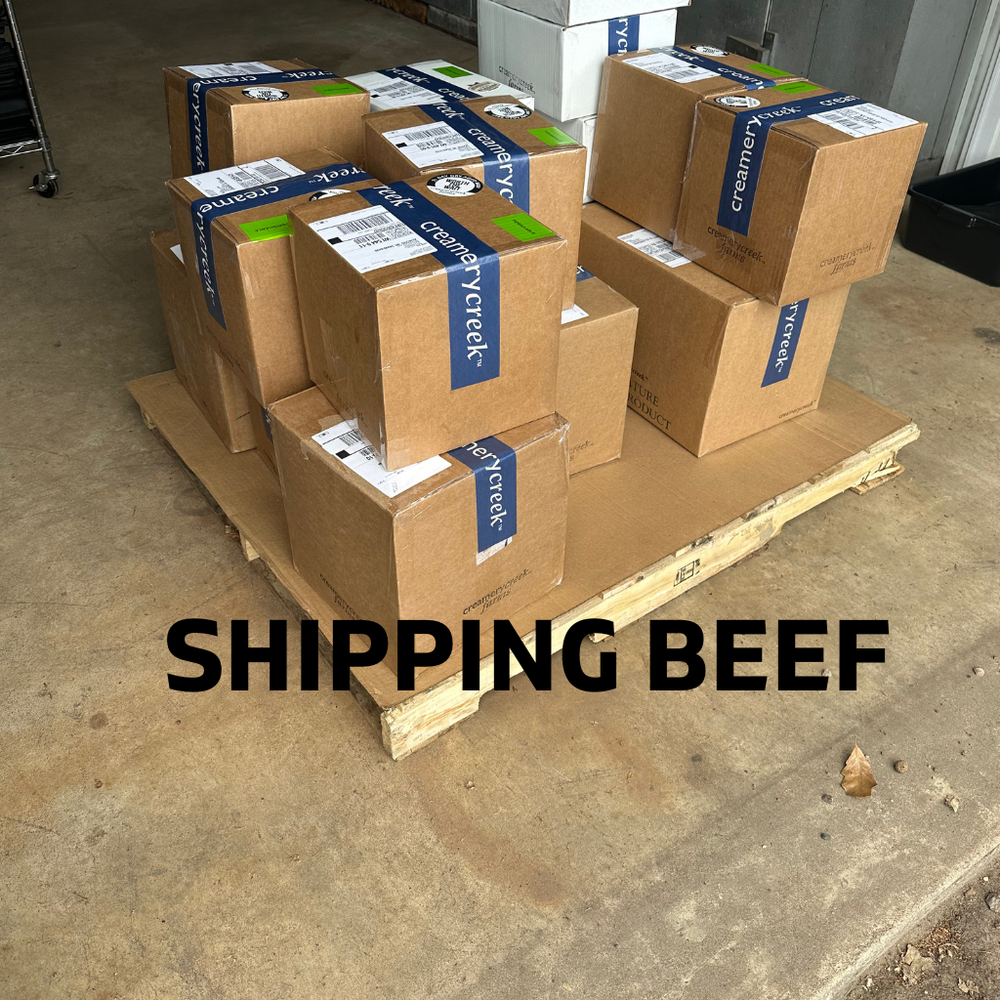
When you place an order from Creamery Creek, it doesn’t disappear into a warehouse somewhere. It stays right here on our family farm until the day it heads your way.
Every week, our crew packs boxes by hand in our on-farm freezer space. Orders are picked, double-checked, and packed with the max amount of dry ice to hold temperature through their journey, whether that’s across Wisconsin or clear to the coast. We ship every Tuesday afternoon, timed so your order moves quickly through the week and never sits in a weekend warehouse.
Each box starts with a layer of insulation and a few carefully placed dry ice packs to keep everything solid and cold. Depending on what you ordered, you might notice how the heavier roasts are placed at the bottom, with smaller cuts and breakfast items tucked neatly around them. It’s a bit like Tetris, but with beef and bacon!
Every cut you receive has been dry-aged, vacuum-sealed, and frozen right here after processing, preserving that Creamery Creek flavor and quality we’re known for. The labels are applied by hand, one at a time, by people who know the herd the meat came from.
Before we close up your box, we like to add a little something extra, maybe a note, a recipe, or a small creekdust sample. We want every shipment to feel personal, because it is.
Your order supports a real family, a real herd, and a farm that’s proud to share what we raise.
So the next time you slice into a steak from Creamery Creek, you’ll know it’s been cared for from pasture to package, with a whole lot of heart along the way.
Hope you'll try it and agree! Tell me about your experience!
XOXO,
Louisa



Leave a comment
Also in Farm Blog
Thawing Big Cuts: How Much Time to Pull from the Freezer
Ever wondered how long it really takes a ham or prime rib to thaw in the fridge? We’ve all been there, staring at a frozen roast two days before dinner. Here’s your guide to safe, slow thawing, including how many days to allow for bone-in versus boneless cuts and when to pull from the freezer so your meal goes off without a hitch.
Plus, a reminder why we only ship frozen, because that’s what keeps your meat safest and freshest.
Keep reading
What’s the Difference Between A1 and A2 Milk
Ever wonder if Creamery Creek milk is A1 or A2? The truth is, it’s a natural blend. Our Holstein herd includes both A1A2 and A2A2 cows, and while we track it through genomic testing, we don’t separate the milk. Here’s what that means and why we care about it.
Keep reading
What’s Really Going On With Imported Beef
There’s been a lot of talk lately about importing more beef from Argentina to “lower prices.” As a beef and dairy farmer, I wanted to share what that really means from our side of the fence. The truth is, cheaper imports don’t fix the challenges facing American farms, they just make it harder for family operations to survive. Here’s what’s really going on and why local beef still matters.
Keep reading